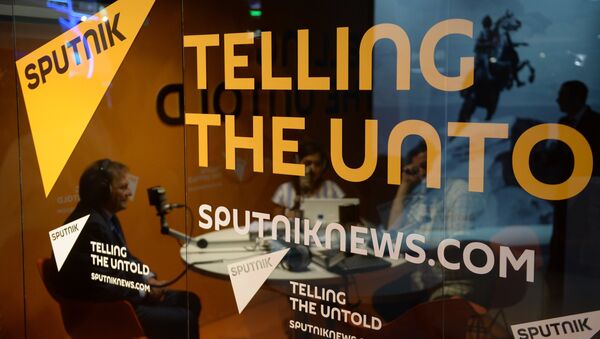During the 24-hour marathon, Sputnik hosts discussed the role of radio broadcasting in the age of social media with notable media analysts and radio broadcasters from the United Kingdom, the United States, Uruguay, Syria, Iraq, China, Lebanon, France, and Russia.
As radio futurologist James Cridland pointed out, despite the fact that for several decades now many people have predicted that the emerging media technologies would cause radio to go extinct, so far none of these prophecies have come to pass.
"If you look back in history, people didn’t really think that radio would go anywhere. And of course television came along and everybody thought ‘that’s it for radio’; then the Walkman came along and everybody thought ‘that’s it for radio’; and now computers and Spotify and all this kind of stuff is coming along and radio is going really-really strongly," he said.
According to Cridland, 90 percent of people in the UK still "tune into the radio every single week," and in places like Malaysia the number radio listeners is even greater.
At the same time he refused to single out any of the platforms radio is currently operating on as "the way forward," insisting that all of them are equally important.
"I really do think that one of the things that people have woken up to is that radio isn’t just AM or FM; that’s not the business radio is in. Radio is in the business of making great content and making that content available in as many different ways as you possibly can," Cridland said.
His point of view was echoed by prominent British politician and broadcaster George Galloway who remarked that the popular 1979 song Video Killed the Radio Star turned out to be just a song and not a prophecy of some kind.
He also pointed out that radio has a number of distinct advantages over other forms of mass media.
"Even though my own radio station is owned by a multi-billionaire oligarch, nobody ever interferes in my show and nobody ever interferes in the feedback to my show. So I have for three hours a completely full switchboard and proliferation of texts and tweets and so on. So you know instantly what the response, reaction is from the public that are listening. It really is a fantastically democratic form of communication. And you don’t need that much money to open and sustain a radio show – the costs of entry in the radio, with the Internet and so on, are fantastically small with what used to be, by comparison still with television,” he said.


